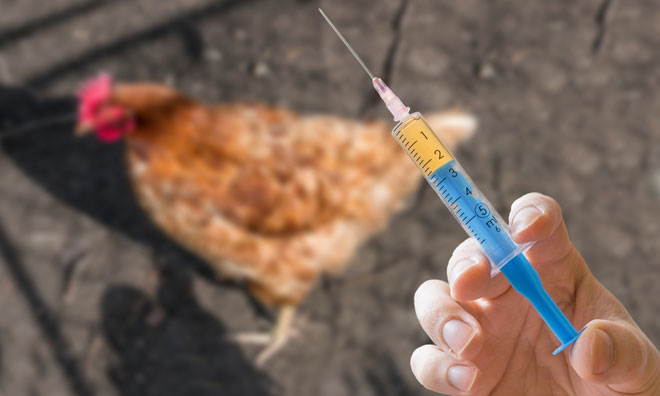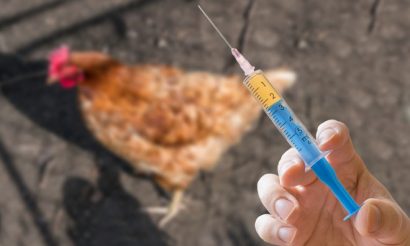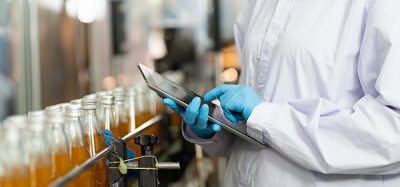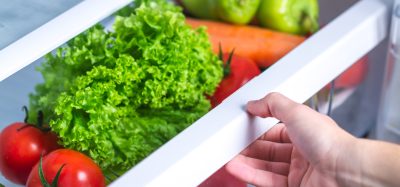RUMA response to new antibiotic paper from Royal Society
- Like
- Digg
- Del
- Tumblr
- VKontakte
- Buffer
- Love This
- Odnoklassniki
- Meneame
- Blogger
- Amazon
- Yahoo Mail
- Gmail
- AOL
- Newsvine
- HackerNews
- Evernote
- MySpace
- Mail.ru
- Viadeo
- Line
- Comments
- Yummly
- SMS
- Viber
- Telegram
- Subscribe
- Skype
- Facebook Messenger
- Kakao
- LiveJournal
- Yammer
- Edgar
- Fintel
- Mix
- Instapaper
- Copy Link
Posted: 6 April 2017 | New Food | 1 comment
The Royal Society has published a new paper “Modelling the impact of curtailing antibiotic usage in food animals on antibiotic resistance in humans”


The Royal Society has published a new paper “Modelling the impact of curtailing antibiotic usage in food animals on antibiotic resistance in humans”, which mathematically models the impact of curtailing antibiotic usage in food animals on antibiotic resistance in humans.


It finds that: “…for a wide range of scenarios, curtailing the volume of antibiotics consumed by food animals has, as a stand-alone measure, little impact on the level of resistance in humans”.
It also says: “..reducing the rate of transmission of resistance from animals to humans may be more effective than an equivalent reduction in the consumption of antibiotics in food animals”.
In response, RUMA says it welcomes the Royal Society’s study but cautions that what the paper itself describes as a ‘simple model’ can only give an indication of likely outcomes.
RUMA chair Gwyn Jones says: “The study highlights the complexity of antibiotic resistance and the need for a ‘One Health’ approach to the problem across humans and animals. So while it suggests that removal of antibiotics from animal production systems is not the answer to antimicrobial resistance in humans, the food and farming sector should not in any way dilute its current focus on reducing, refining and replacing antibiotic use across all sectors.
“An important point it does raise, however, is that a drive for ‘antibiotic-free’ farm produce is not necessarily beneficial for human health and makes any related detrimental impacts on animal health and welfare even more unjustifiable. RUMA therefore retains its position that responsible use of antibiotics alongside well-managed, scientifically-robust reductions is the most appropriate approach.”
About RUMA
RUMA was founded 20 years ago and is an agricultural and food industry alliance which promotes responsible use of medicines in farm animals. Its 26 member organisations represent all stages of the animal food chain from ‘farm to fork’ that have an interest in the stewardship of animal medicines in agriculture. This reflects the importance of traceability, transparency and accountability at all points in the chain: from primary food production, through processing, manufacturing and retailing to the final consumer. Its membership includes organisations representing interests in agriculture, veterinary practice, animal medicines, farm assurance, training, food processing, retailing, consumers and the public, and animal welfare.









This is just one of many articles providing only the agriculture industry spin on this paper by only mentioning the finding that curtailing antibiotic alone will not solve the problem. it fails to mention that the authors also found that “a failure to address the agricultural usage of antibiotics severely limits what can be achieved by tackling the problem from the human side… In other words, if resistance dynamics in human and animal populations are coupled, as is generally thought to be the case in practice, substantial impacts on levels of resistance requires coordinated interventions across both populations.” It works both ways no one working on the problem of antibiotics claims it is primarily the result of animal use. Instead they argue consistent with this paper that you cannot solve the problem without addressing farm use of antibiotics along with the many actions required on the human side.